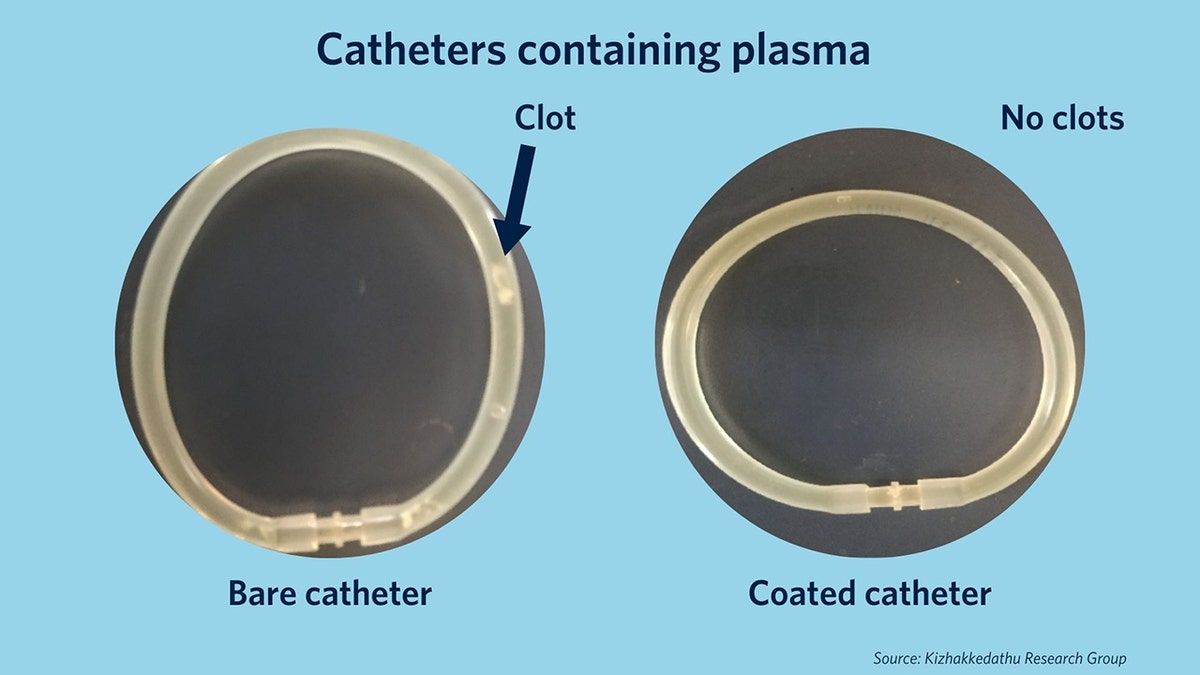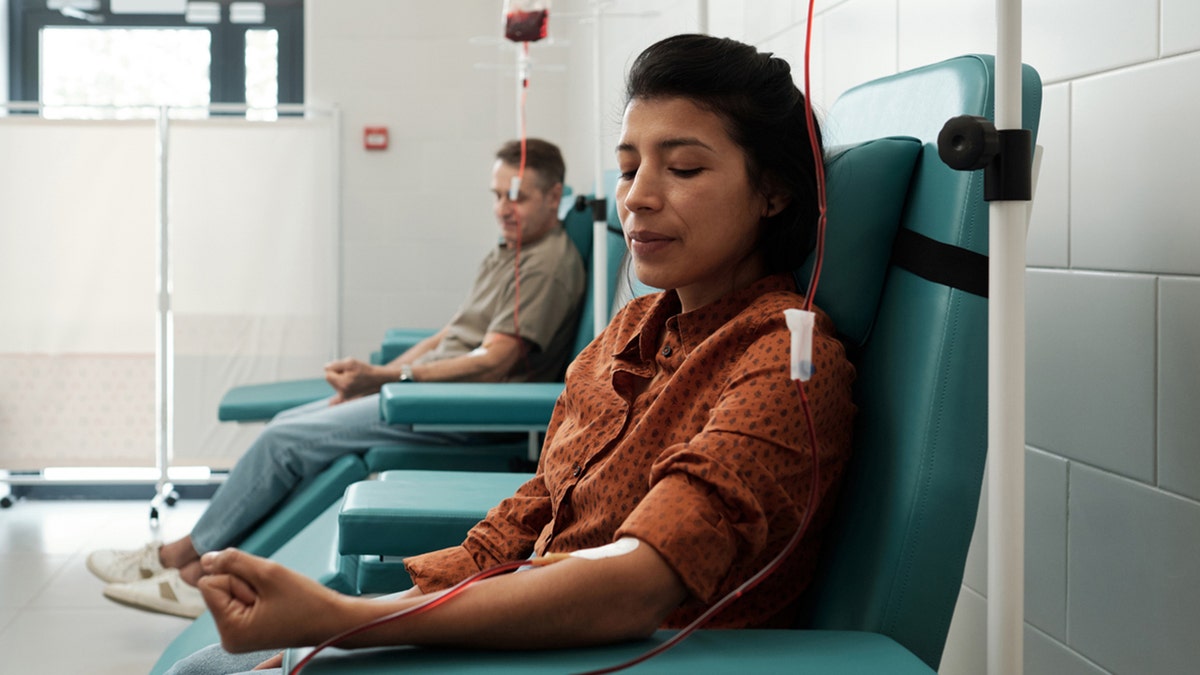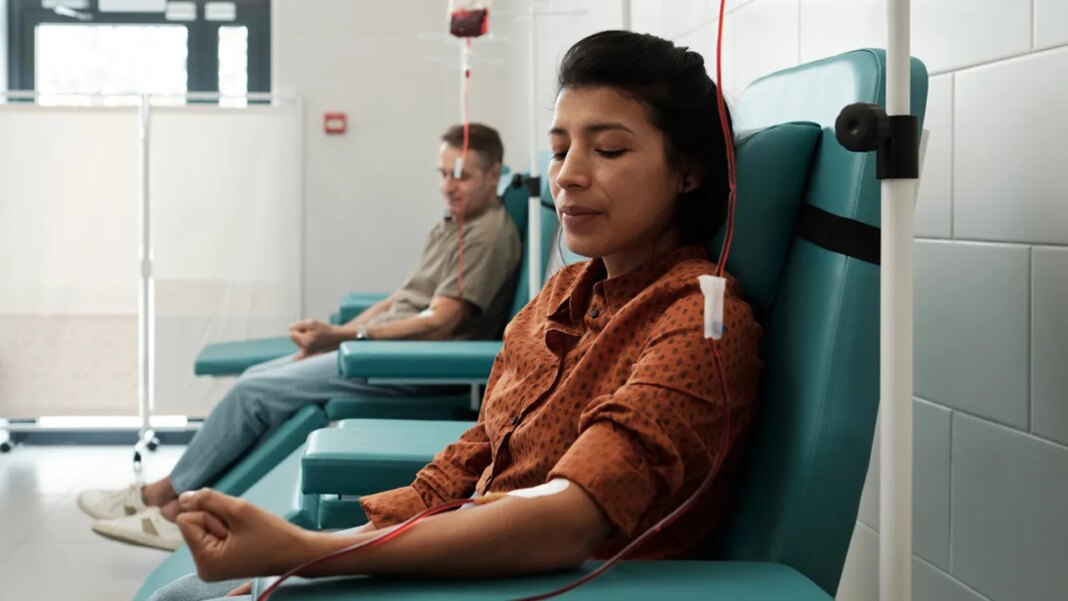Researchers from the College of British Columbia (UBC) have developed what’s being thought-about “a groundbreaking coating” that might make medical devices safer.
For thousands and thousands of sufferers, this might imply decreasing the danger of thrombosis (or blood clot formation) and harmful bleeding, based on a UBC press launch.
The brand new materials, which is designed for tubing in varied medical gadgets, mimics the “pure habits of blood vessels.”
HIV-POSITIVE TRANSPLANTS NOW PERMITTED FOR LIVERS AND KIDNEYS
This permits for the safer use of blood-contacting devices, similar to catheters, stents, blood-oxygenation machines and dialysis machines, the discharge said.

Researchers spot the distinction between a naked catheter and a coated one. (Kizhakkedathu Analysis Group)
The coating might show particularly useful in instances the place blood clots are an even bigger concern.
Blood thinners are often prescribed in excessive doses to forestall clots in machine customers, however this could improve the danger of harmful bleeding, based on the college.
“Since nearly all artificial supplies activate blood upon contact, this is a gigantic problem.”
“By designing a coating that mimics the physique’s pure method to stopping clots, we’ve created an answer that might dramatically cut back the necessity for dangerous blood thinners earlier than and after sufferers use these gadgets,” the research creator wrote in an electronic mail.
Dr. Jayachandran Kizhakkedathu, professor of pathology and laboratory medication on the College of British Columbia, shared with Fox Information Digital that this discovery may very well be a “transformative step within the improvement of safer medical devices.”
LEUKEMIA PATIENT RECEIVES FIRST-EVER BONE MARROW TRANSPLANT FROM DECEASED ORGAN DONOR
The analysis – which was printed within the journal Nature Supplies – confirmed that mimicking the physique’s personal mechanisms, as a substitute of repelling blood parts, is “key to really biocompatible machine design,” based on Kizhakkedathu.

The brand new coating is engineered to mimic the operate of blood vessels, based on the researchers, and acts as a “smooth barrier” that draws a key blood protein to forestall clotting. (iStock)
Kizhakkedathu talked about that there was a “regular rise” in using blood-contacting gadgets over the previous few many years, however famous that this has been restricted by blood clot threat, which will be “detrimental to the health of patients.”
CLICK HERE TO SIGN UP FOR OUR HEALTH NEWSLETTER
“Since nearly all artificial supplies activate blood upon contact, this is a gigantic problem,” he went on.
Creating supplies that may “inherently keep away from coagulation activation” has been a long-term purpose, based on Kizhakkedathu.
For more Health articles, visit www.foxnews.com/health
“There are not any efficient strategies to forestall thrombosis and irritation in gadgets, and little progress has been remodeled a number of many years regardless of vital efforts,” he went on.

“There’s elevated hope to create extremely improved medical gadgets the place thrombosis concern isn’t any extra,” a researcher shared. (iStock)
“Nevertheless, our chemistry design allowed us to develop a non-toxic polycationic molecule and develop a floor that forestalls blood clotting.”
Kizhakkedathu talked about that this improvement remains to be within the early levels and wishes further research in tougher instances and amongst different animal fashions.
CLICK HERE TO GET THE FOX NEWS APP
“We hope this method may also encourage and profit different scientists on this area,” he instructed Fox Information Digital.
“For most of the people, there may be elevated hope to create extremely improved medical gadgets the place thrombosis concern isn’t any extra.”

